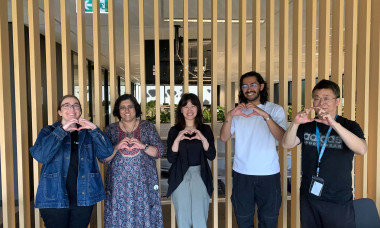6 student services more relevant than ever in private higher education
Private higher education is built on the provision of a high quality, high touch education service. With the capacity to pay more attention to individual learning outcomes and align more closely with industry needs, private higher education has always delivered strong levels of student support.
This is now rising to the fore. As emerge to re-engage more strongly with their higher educators after the pandemic, they will increasingly be looking to their education providers step up to the challenge of supporting their self-reliance in a challenging learning and employment world.
Six student services could help private higher educators showcase a better student experience.
1. Mentoring & Coaching
Why: Students have received a loud and clear message in recent years that their career prospects are likely to be improved if they can secure a good mentor or coach. Once the domain of early- to mid-career professionals who had at least some experience in the workforce, mentoring is now being sought earlier by students who are less willing to wait for experience to accrue and years to pass, and who have an appetite for fast-paced career progression, direction, insight and advice.
How:Private higher educators are well placed to meet the demand. With comparably stronger networks within their niches across the board and an expanding number of alumni with industry experience (in addition to the quality experience of teaching staff), these providers should be able to match deserving student talent with industry professionals, improving the likelihood of completion, the study-to-work transition and the attractiveness of their brand to aspirational future students.
2. Work Placements & Internships
Why: Students are more focused than ever on the ‘return on investment’ they get from education in the form of employment outcomes. With a vast universe of learning options available, a rising public consciousness around the importance of real practical skills and the difficulties many cohorts have found in securing quality work in their area of study, students are looking for providers who are able to integrate work experience opportunities throughout their learning journey.
How: Private higher educators have the capacity to edge out other providers when it comes to work experience and internships. Through strong engagement with their industry niches (an effort that many have invested in and that has become a virtuous cycle over many years), they can offer creative ways for students to gain real workplace exposure while benefitting the industry and the employers with which they have developed these symbiotic, mutually beneficial relationships.
3. Counselling & Wellness
Why: Mental health and wellness dominated the discourse about students in 2020 in response to the global pandemic. It has now become a focal point for many educators looking to enhance levels of student support. Even before the pandemic the QILT Survey found that, of those students who were considering departure from higher education providers (of all types, including private), 46 per cent cited stress or health reasons, dwarfing all of the other reasons for wanting to leave.
How: Being able to offer students health and wellness support will be a baseline expectation in the years ahead. Whether students come from international or local markets, private higher educators will be expected to meet student needs and their duty of care by going over and above to ensure students are looked after. They can do this by linking them more comprehensively with services like counselling, automated check-ins, mental health first aid, peer support, and wellness initiatives.
4. Financial Assistance
Why: Students from all walks of life have been impacted by recent economic ructions (and even those who have not are likely to be more cautious when it comes to extending themselves financially). With incomes and employment impacted, as well as a realisation work is never guaranteed, students are actively looking for reasonable fees and financial support during their learning, as well as more understanding from education providers of their financial situation.
How: For private higher educators this will likely mean providing as much information as possible to students as well as better facilitating access to appropriate financial options and services. With the option to inject flexibility into course payments and total fee costs or experiment with scholarships to attract students during difficult economic times, private educators are in a good position to make financial assistance as simple, seamless and stress-free as possible for incoming cohorts.
5. Childcare
Why: Childcare is a barrier for those looking to re-enter the workforce or take time out of their busy work and life schedule to invest in learning and advancement through private higher education. With a high cost, even for those who qualify for subsidies while studying or retraining, it can either prevent - or make much more difficult - the decision to engage with learning in person. It can also make completing enrolled courses or thriving in the learning environment more challenging.
How: Educators who are able to provide or link students to convenient childcare services (and if possible, at a reduced out of pocket cost) will likely be considered above their competitors as venues for learning. By supporting engagement with nearby (or even on-campus) services for regular, occasional or intensive childcare options, students are likely to be attracted to the pure convenience of being able to access these services in and around their work and study commitments.
6. Accommodation & Homestay
Why: With the likes of Airbnb already in the pockets of many of the students who require accommodation and homestay services (particularly international students), many are seeking convenient, technology-enabled services that can match or provide them with a suitable roof over their heads. They expect as much insight into the place they will live as possible, as well as a level of comfort around the level of safety and security they will receive when they get there.
How: Private higher educators can deploy more sophisticated accommodation and homestay technology to match students with providers while providing them with an attractive window into their potential experience. A boon for international students (who have the added challenge of fending for themselves in a new culture and language), this is likely to make the student experience more seamless and transition students in ways that enhance success and peer recommendations.






